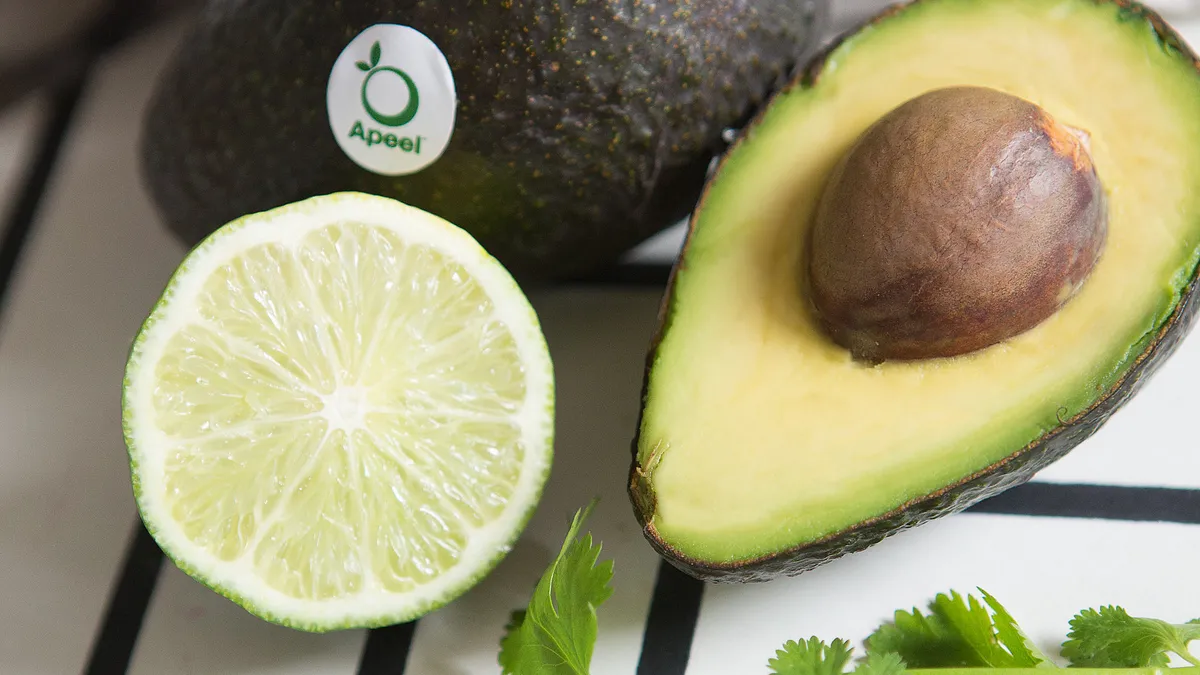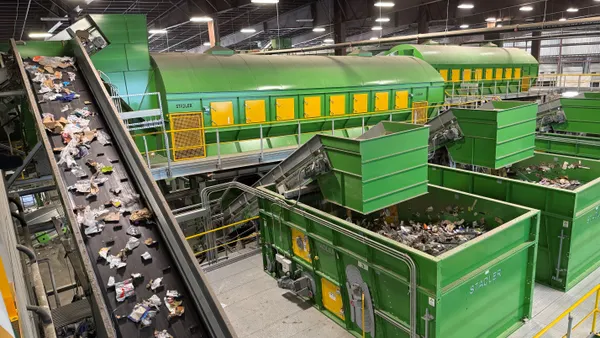By the time the avocado is picked, shipped and displayed at grocery stores, it may only have a few days left until it spoils and must be thrown away. Now, one company may have an answer.
Apeel Sciences has developed technology that it claims could more than double the shelf life of the fruit, helping consumers, retailers and the environment by cutting down on food waste — saving large sums of money in the process.
The California-based company has developed a powder that is sprayed on produce close to harvest — like the skin of an avocado — and dried to create an extra layer of plant material to slow the rate of water loss and oxidation, the two reasons produce spoils quickly. The initiative could help cut down on the $2.6 trillion of food waste generated annually, according to Apeel Sciences.
Avocados, the company's first product to use the edible coating, will be sold at Costco outlets nationwide and Harps Food Stores in the Midwest. The company plans on announcing its expansion to other retailers and regions soon, Michelle Masek, head of marketing at Apeel Sciences, told Food Dive. The company chose these retailers due to Costco’s large quantity of produce sold in bulk that requires freshness for an extended period of time, and the high quality standards both chains have for agricultural products, she added.
“If everyone ate fresh fruits and vegetables, we’d be a healthier country," Masek said. "There are just two issues: quality and accessibility.”
The U.S. retail food sector produces eight million tons of waste annually at distribution centers and stores culminating in $18 billion in lost revenue for retailers. Apeel has been successful in increasing the shelf life for dozens of produce categories including bananas, berries, citruses, stone fruit, peppers and asparagus. So far, the avocado is the company's only product on the market.
The coating, made from leftover plant skins and stems, could save suppliers, retailers and consumers big bucks by promoting sustainable growing practices and reducing waste from farm to retailer to home. It could also be beneficial to the environment if less water, fertilizer or land is needed to grow produce to replace those items that are wasted.
The company has attracted a prestigious list of investors. In 2012, James Rogers, CEO and founder of Apeel Sciences, received a grant from the Melinda and Bill Gates foundation to work on developing the shelf life-sustaining technology. Since then, the company has raised $40 million in funding, much of which came from Andreessen Horowitz in 2016.
If the technology is widely adapted, it could be a boon to parts of the U.S. that struggle to access certain varieties of fresh produce, particularly during the winter. States near the coast tend to get better quality produce than Midwestern states, Masek added. She described these areas as food deserts where consumers are required to travel long distances to find fresh fruits and vegetables. Location can have a negative impact on the taste of produce if it was picked prematurely.
“With this product, farmers can optimize their harvest so better quality food can be grown because it has more time to get to the stores," Masek said. "We think that quality and accessibility should be consistent in our country.”
Apeel Sciences is in the process of applying the product to produce at packing houses, according to Masek. Although the coating is exclusively sold to suppliers and retailers on the production end, the company is hoping to eventually sell the powder directly to consumers.
“Every piece of produce, every fruit, every plant already has a peel. And that peel is already doing what it needs to do to keep the fruit fresh," she said. "Instead of making new chemicals in a lab, let's use the same ingredients that nature gives us time and time again to add a little extra Apeel to produce."















